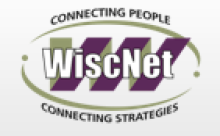By
on

As more people and organizations in Wisconsin learn of AT&T's attempts to kill a taxpayer-money saving network in Wisconsin, the list of letters supporting WiscNet is increasing. We want to highlight two. The first is a resolution from the University of Wisconsin-River Falls Faculty Senate [pdf]:
Whereas, on Friday, June 3, 2011, the Wisconsin Legislature's Joint Committee on Finance passed motion 489 that contained a provision that would eliminate WiscNet as a department or office within the UW-Madison Department of Information Technology and eliminate $1.4 million in funding for WiscNet for 2012-13; and
Whereas, WiscNet provides vital broadband network access to all public institutions of higher education including the UW System (UW), Wisconsin technical colleges and many private colleges and universities in Wisconsin, 95% of public libraries and 80% of school districts; and
 Whereas, without WiscNet, these institutions would be forced to seek internet services from private telecommunications providers. All schools and public libraries could see a significant average cost increase greater than the current costs through WiscNet; and
Whereas, Wisconsin taxpayers benefit from millions of dollars in savings through the services WiscNet provides to these educational institutions; and
Whereas WiscNet embodies the “Wisconsin Idea” and it has fostered collaboration between higher education, K-12 education and public libraries for the past 16 years that will disappear; and
Whereas, motion 489 could undermine the ability of UW faculty members to receive grants and conduct their research; therefore,
Be it resolved that the University of Wisconsin River Falls Faculty Senate request a motion be introduced to delete sections 23-26 of Motion 489 on the floor of the legislature before the budget bill is approved by the legislators and sent to Governor Walker for his signature; and
Be it further resolved, that the University of Wisconsin-River Falls Faculty Senate requests the Wisconsin Legislature restore WiscNet funding so this cost-effective internet service for all Wisconsin institutions of higher education, K-12 schools, and public libraries remains viable.
The second is a statement from the Council of University of Wisconsin Libraries [pdf]:
Whereas, without WiscNet, these institutions would be forced to seek internet services from private telecommunications providers. All schools and public libraries could see a significant average cost increase greater than the current costs through WiscNet; and
Whereas, Wisconsin taxpayers benefit from millions of dollars in savings through the services WiscNet provides to these educational institutions; and
Whereas WiscNet embodies the “Wisconsin Idea” and it has fostered collaboration between higher education, K-12 education and public libraries for the past 16 years that will disappear; and
Whereas, motion 489 could undermine the ability of UW faculty members to receive grants and conduct their research; therefore,
Be it resolved that the University of Wisconsin River Falls Faculty Senate request a motion be introduced to delete sections 23-26 of Motion 489 on the floor of the legislature before the budget bill is approved by the legislators and sent to Governor Walker for his signature; and
Be it further resolved, that the University of Wisconsin-River Falls Faculty Senate requests the Wisconsin Legislature restore WiscNet funding so this cost-effective internet service for all Wisconsin institutions of higher education, K-12 schools, and public libraries remains viable.
The second is a statement from the Council of University of Wisconsin Libraries [pdf]:
 The Council of University of Wisconsin Libraries (CUWL) is urging you to remove sections 23-26 of the UW System budget. The “telecommunications” section of the legislation as it is proposed would severely limit broadband connectivity throughout the state of Wisconsin and would cut the innumerable services the UW System libraries provide to the citizens of the state of Wisconsin.
WHEREAS service to broadband Internet access through WISCNET is mission critical to the academic success of students, faculty and staff;
WHEREAS service to broadband Internet access through WISCNET is mission critical to libraries and library users across the state of Wisconsin;
WHEREAS University of Wisconsin system libraries depend heavily on consortial agreements that provide network or information technology services such as Internet 2 and EDUCAUSE;
WHEREAS University of Wisconsin system libraries enable access to members of the local communities, K-12 schools, visiting scholars, international visitors, via WISCNET connectivity;
WHEREAS University of Wisconsin campuses and University of Wisconsin Extension’s provide direct connections to communities, hospitals, public libraries, etc.
WHEREAS, if legislation of this bill passes the UW System libraries, public libraries, private colleges and universities libraries, K-12 libraries, special libraries, local historical societies and museums, hospitals, local municipalities and other public offices will be severely hindered in providing affordable and outstanding bandwidth internet access to their users;
WHEREAS, the passage of sections 23-26 of the UW System Budget Bill would have devastating and deleterious effects on our collaborative services such as “universal borrowing” for all UW collections, high-speed interlibrary services, on-site access and services to visitors, and cooperative purchasing of databases and electronic resources.
THEREFORE, The CUWL library members strongly urge you to remove said sections of the bill and to provide WISCNET the support it should have from the state of Wisconsin.
The Council of University of Wisconsin Libraries (CUWL) is urging you to remove sections 23-26 of the UW System budget. The “telecommunications” section of the legislation as it is proposed would severely limit broadband connectivity throughout the state of Wisconsin and would cut the innumerable services the UW System libraries provide to the citizens of the state of Wisconsin.
WHEREAS service to broadband Internet access through WISCNET is mission critical to the academic success of students, faculty and staff;
WHEREAS service to broadband Internet access through WISCNET is mission critical to libraries and library users across the state of Wisconsin;
WHEREAS University of Wisconsin system libraries depend heavily on consortial agreements that provide network or information technology services such as Internet 2 and EDUCAUSE;
WHEREAS University of Wisconsin system libraries enable access to members of the local communities, K-12 schools, visiting scholars, international visitors, via WISCNET connectivity;
WHEREAS University of Wisconsin campuses and University of Wisconsin Extension’s provide direct connections to communities, hospitals, public libraries, etc.
WHEREAS, if legislation of this bill passes the UW System libraries, public libraries, private colleges and universities libraries, K-12 libraries, special libraries, local historical societies and museums, hospitals, local municipalities and other public offices will be severely hindered in providing affordable and outstanding bandwidth internet access to their users;
WHEREAS, the passage of sections 23-26 of the UW System Budget Bill would have devastating and deleterious effects on our collaborative services such as “universal borrowing” for all UW collections, high-speed interlibrary services, on-site access and services to visitors, and cooperative purchasing of databases and electronic resources.
THEREFORE, The CUWL library members strongly urge you to remove said sections of the bill and to provide WISCNET the support it should have from the state of Wisconsin.
 Whereas, without WiscNet, these institutions would be forced to seek internet services from private telecommunications providers. All schools and public libraries could see a significant average cost increase greater than the current costs through WiscNet; and
Whereas, Wisconsin taxpayers benefit from millions of dollars in savings through the services WiscNet provides to these educational institutions; and
Whereas WiscNet embodies the “Wisconsin Idea” and it has fostered collaboration between higher education, K-12 education and public libraries for the past 16 years that will disappear; and
Whereas, motion 489 could undermine the ability of UW faculty members to receive grants and conduct their research; therefore,
Be it resolved that the University of Wisconsin River Falls Faculty Senate request a motion be introduced to delete sections 23-26 of Motion 489 on the floor of the legislature before the budget bill is approved by the legislators and sent to Governor Walker for his signature; and
Be it further resolved, that the University of Wisconsin-River Falls Faculty Senate requests the Wisconsin Legislature restore WiscNet funding so this cost-effective internet service for all Wisconsin institutions of higher education, K-12 schools, and public libraries remains viable.
The second is a statement from the Council of University of Wisconsin Libraries [pdf]:
Whereas, without WiscNet, these institutions would be forced to seek internet services from private telecommunications providers. All schools and public libraries could see a significant average cost increase greater than the current costs through WiscNet; and
Whereas, Wisconsin taxpayers benefit from millions of dollars in savings through the services WiscNet provides to these educational institutions; and
Whereas WiscNet embodies the “Wisconsin Idea” and it has fostered collaboration between higher education, K-12 education and public libraries for the past 16 years that will disappear; and
Whereas, motion 489 could undermine the ability of UW faculty members to receive grants and conduct their research; therefore,
Be it resolved that the University of Wisconsin River Falls Faculty Senate request a motion be introduced to delete sections 23-26 of Motion 489 on the floor of the legislature before the budget bill is approved by the legislators and sent to Governor Walker for his signature; and
Be it further resolved, that the University of Wisconsin-River Falls Faculty Senate requests the Wisconsin Legislature restore WiscNet funding so this cost-effective internet service for all Wisconsin institutions of higher education, K-12 schools, and public libraries remains viable.
The second is a statement from the Council of University of Wisconsin Libraries [pdf]:
 The Council of University of Wisconsin Libraries (CUWL) is urging you to remove sections 23-26 of the UW System budget. The “telecommunications” section of the legislation as it is proposed would severely limit broadband connectivity throughout the state of Wisconsin and would cut the innumerable services the UW System libraries provide to the citizens of the state of Wisconsin.
WHEREAS service to broadband Internet access through WISCNET is mission critical to the academic success of students, faculty and staff;
WHEREAS service to broadband Internet access through WISCNET is mission critical to libraries and library users across the state of Wisconsin;
WHEREAS University of Wisconsin system libraries depend heavily on consortial agreements that provide network or information technology services such as Internet 2 and EDUCAUSE;
WHEREAS University of Wisconsin system libraries enable access to members of the local communities, K-12 schools, visiting scholars, international visitors, via WISCNET connectivity;
WHEREAS University of Wisconsin campuses and University of Wisconsin Extension’s provide direct connections to communities, hospitals, public libraries, etc.
WHEREAS, if legislation of this bill passes the UW System libraries, public libraries, private colleges and universities libraries, K-12 libraries, special libraries, local historical societies and museums, hospitals, local municipalities and other public offices will be severely hindered in providing affordable and outstanding bandwidth internet access to their users;
WHEREAS, the passage of sections 23-26 of the UW System Budget Bill would have devastating and deleterious effects on our collaborative services such as “universal borrowing” for all UW collections, high-speed interlibrary services, on-site access and services to visitors, and cooperative purchasing of databases and electronic resources.
THEREFORE, The CUWL library members strongly urge you to remove said sections of the bill and to provide WISCNET the support it should have from the state of Wisconsin.
The Council of University of Wisconsin Libraries (CUWL) is urging you to remove sections 23-26 of the UW System budget. The “telecommunications” section of the legislation as it is proposed would severely limit broadband connectivity throughout the state of Wisconsin and would cut the innumerable services the UW System libraries provide to the citizens of the state of Wisconsin.
WHEREAS service to broadband Internet access through WISCNET is mission critical to the academic success of students, faculty and staff;
WHEREAS service to broadband Internet access through WISCNET is mission critical to libraries and library users across the state of Wisconsin;
WHEREAS University of Wisconsin system libraries depend heavily on consortial agreements that provide network or information technology services such as Internet 2 and EDUCAUSE;
WHEREAS University of Wisconsin system libraries enable access to members of the local communities, K-12 schools, visiting scholars, international visitors, via WISCNET connectivity;
WHEREAS University of Wisconsin campuses and University of Wisconsin Extension’s provide direct connections to communities, hospitals, public libraries, etc.
WHEREAS, if legislation of this bill passes the UW System libraries, public libraries, private colleges and universities libraries, K-12 libraries, special libraries, local historical societies and museums, hospitals, local municipalities and other public offices will be severely hindered in providing affordable and outstanding bandwidth internet access to their users;
WHEREAS, the passage of sections 23-26 of the UW System Budget Bill would have devastating and deleterious effects on our collaborative services such as “universal borrowing” for all UW collections, high-speed interlibrary services, on-site access and services to visitors, and cooperative purchasing of databases and electronic resources.
THEREFORE, The CUWL library members strongly urge you to remove said sections of the bill and to provide WISCNET the support it should have from the state of Wisconsin.






